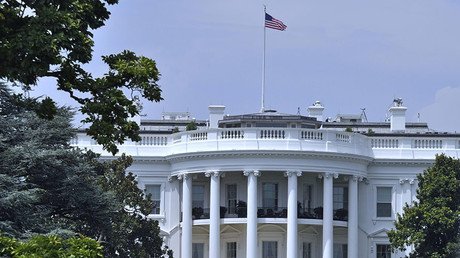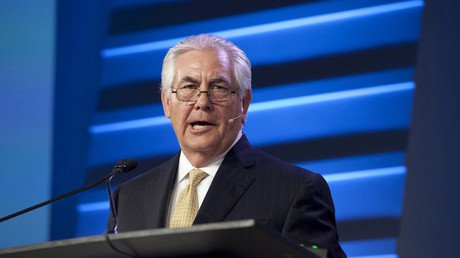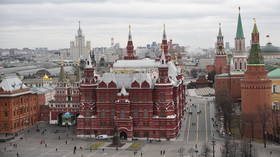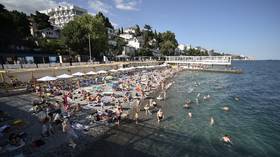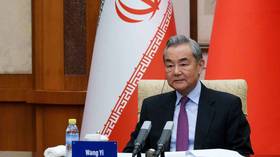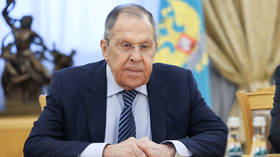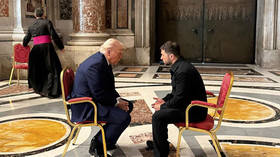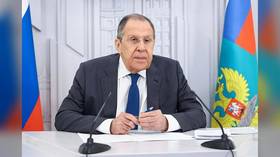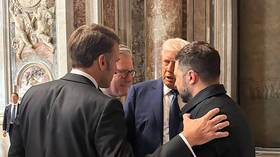Putin says sanctions harming fight against terrorism, hopes Germany attack will bring West closer
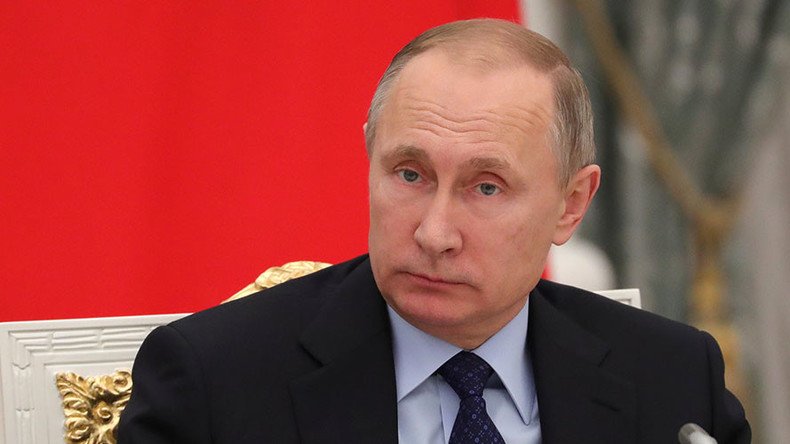
Vladimir Putin says that the rift created by anti-Russian sanctions is affecting cooperation in the battle against terrorism, while Russia’s foreign ministry says that recently introduced US sanctions “will not be left without reply.”
#Kremlin: the President reviewed 2016 with Federation Council and State Duma leaders https://t.co/sFNZL3QgrQpic.twitter.com/nPixMPNyfv
— President of Russia (@KremlinRussia_E) 21 December 2016
“All these restrictions in the economic and political spheres drive apart states, and prevent us from joining forces in combating a common evil – terrorism,” said the Russian President during a meeting with Russia’s top legislators in Moscow on Wednesday.
“Unfortunately, the situation is not entirely in our hands. We hope that recent tragic events, including the attack in Germany, will prompt our partners to work more closely on this issue, which is important to all of us,” continued Putin, referring to Monday’s truck attack in Berlin that left 12 dead and dozens injured.
Joint anti-terrorism and drug-trafficking operations between Russia and NATO have been suspended since Crimea’s secession from Ukraine in 2014. Efforts to build an anti-Islamic State (IS, formerly ISIS/ISIL) coalition in Syria also suffered a high-profile collapse this autumn, though Moscow has discussed reviving the drive with the incoming White House administration.
But relations with the US suffered a setback this week, when Washington announced a raft of new sanctions against individuals and state-connected companies, and two ships connected to Crimea on Tuesday. The Treasury said their aim was to “maintain pressure on Russia by sustaining the costs of its occupation of Crimea and disrupting the activities of those who support the violence and instability in Ukraine.”
A slew of top Russian public officials have vowed to respond.
“Instead of focusing on coordinating efforts to fend off the challenges of our age, chiefly extremism and terrorism, the White House continues looking for ways to ‘punish’ us by inflicting pain,” said a statement from the foreign ministry released on Wednesday.
“Washington should have learned a long time ago that these efforts are unpromising, and doomed to failure, and the new restrictions will not be left without reply.”
Without mentioning President-elect Donald Trump by name, the ministry appealed for the new administration to “drop the confrontational approach of the Administration of Barack Obama” and move to “practical steps to normalize bilateral relations.”
While the designated Secretary of State, Rex Tillerson, had argued in his previous private role as CEO of ExxonMobil that sanctions against Russia should be abandoned, the European Union, on Monday, extended its own anti-Russia sanctions up to July 31, 2017.
